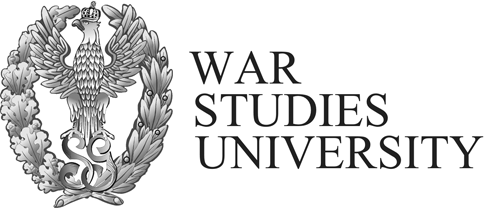Online first
Current issue
All issues
About
Aims and scope
Peer review process
Publication policy and ethics & malpractice statement
Editorial Board
Reviewers
Publisher
Guide for authors
Call for papers
Book Reviews
Special Issues Archive
New and emerging technologies in defence education, training and governance
Non-traditional conflicts, non-state actors, and use of proxy forces in modern warfare
Special Issue: Call for papers
In recent years, we have been observing the growing involvement and significance of non-state actors and proxy forces in contemporary warfare. Pursuing their own interests, or being employed by foreign states, proxy forces or local non-state actors can be added to a myriad of elements and factors that shape fewer and fewer contemporary traditional and binary conflicts, which consist of asymmetric, irregular, unconventional or hybrid characteristics. This field of study lags behind the reality often hidden behind the modern fog of war, or disinformation; therefore, as guest editors of a special issue of the Security and Defence Quarterly, we would like to invite you to help us understand the discussed phenomenon better by contributing to this unique edition of the international academic journal. Therefore, it is our honour to invite you to contribute to a special edition of the Security and Defence Quarterly. The working title of the incoming special edition is “Non-Traditional Conflicts, Non-State Actors and Use of Proxy Forces in Modern Warfare”. The proposals for this special edition may focus on the issue from a variety of theoretical and disciplinary perspectives of security studies.
Full papers (between 6000 and 10000 words) are invited for publication in this Special Issue. All authors must follow Security and Defence “Guide for Authors”. To submit a manuscript, please access: https://securityanddefence.pl/ and select this Special Issue “Non-Traditional Conflicts, Non-State Actors and Use of Proxy Forces in Modern Warfare”. All submissions are subject to standard peer review, revision, and re-submission processes.
Deadline: 15 September 2020
Guest Editors:
Cüneyt Gürer, University of Siegen, Germany. Email: Cuneyt.Guerer@uni-siegen.de
Cyprian Aleksander Kozera, War Studies University, Poland. Email: c.kozera@akademia.mil.pl
Published papers: Volume 31 Issue 4, February 2020
Table of Contents
Ömer Faruk Cantenar: Foreword to the Special Issue ‘Proxy forces in modern warfare’: Practitioner’s perspective on the use of proxy forces
Cyprian Aleksander Kozera, Cüneyt Gürer: Introduction to the Special Issue ‘Proxy forces in modern warfare’
James Kenneth Wither: Outsourcing warfare: Proxy forces in contemporary armed conflicts
Zoran Ivanov: Changing the character of proxy warfare and its consequences for geopolitical relationships
Sascha Bruchmann: Towards a structural understanding of powerbrokers in weak states: From militias to alliances
Cyprian Aleksander Kozera, Paweł Bernat, Cüneyt Gürer, Błażej Popławski, Mehmet Alper Sözer: Game of Proxies – Towards a new model of warfare: Experiences from the CAR, Libya, Mali, Syria, and Ukraine
Christian Kaunert, Ori Wertman: The securitisation of hybrid warfare through practices within the Iran-Israel conflict - Israel's practices to securitize Hezbollah's Proxy War
Jeferson Guarin P.: FARC-Hezbollah: The success of Venezuela-Iran proxy groups and their convergence in the Americas
Engin Yüksel: Turkey’s approach to proxy war in the Middle East and North Africa
Iveta Hlouchova: Countering terrorism in the shadows: The role of private security and military companies
Seun Bamidele: “Sweat is invisible in the rain”: Civilian Joint Task Force and counter-insurgency in Borno State, Nigeria
Filip Bryjka: Operational control over non-state proxies
In recent years, we have been observing the growing involvement and significance of non-state actors and proxy forces in contemporary warfare. Pursuing their own interests, or being employed by foreign states, proxy forces or local non-state actors can be added to a myriad of elements and factors that shape fewer and fewer contemporary traditional and binary conflicts, which consist of asymmetric, irregular, unconventional or hybrid characteristics. This field of study lags behind the reality often hidden behind the modern fog of war, or disinformation; therefore, as guest editors of a special issue of the Security and Defence Quarterly, we would like to invite you to help us understand the discussed phenomenon better by contributing to this unique edition of the international academic journal. Therefore, it is our honour to invite you to contribute to a special edition of the Security and Defence Quarterly. The working title of the incoming special edition is “Non-Traditional Conflicts, Non-State Actors and Use of Proxy Forces in Modern Warfare”. The proposals for this special edition may focus on the issue from a variety of theoretical and disciplinary perspectives of security studies.
Full papers (between 6000 and 10000 words) are invited for publication in this Special Issue. All authors must follow Security and Defence “Guide for Authors”. To submit a manuscript, please access: https://securityanddefence.pl/ and select this Special Issue “Non-Traditional Conflicts, Non-State Actors and Use of Proxy Forces in Modern Warfare”. All submissions are subject to standard peer review, revision, and re-submission processes.
Deadline: 15 September 2020
Guest Editors:
Cüneyt Gürer, University of Siegen, Germany. Email: Cuneyt.Guerer@uni-siegen.de
Cyprian Aleksander Kozera, War Studies University, Poland. Email: c.kozera@akademia.mil.pl
Published papers: Volume 31 Issue 4, February 2020
Table of Contents
Ömer Faruk Cantenar: Foreword to the Special Issue ‘Proxy forces in modern warfare’: Practitioner’s perspective on the use of proxy forces
Cyprian Aleksander Kozera, Cüneyt Gürer: Introduction to the Special Issue ‘Proxy forces in modern warfare’
James Kenneth Wither: Outsourcing warfare: Proxy forces in contemporary armed conflicts
Zoran Ivanov: Changing the character of proxy warfare and its consequences for geopolitical relationships
Sascha Bruchmann: Towards a structural understanding of powerbrokers in weak states: From militias to alliances
Cyprian Aleksander Kozera, Paweł Bernat, Cüneyt Gürer, Błażej Popławski, Mehmet Alper Sözer: Game of Proxies – Towards a new model of warfare: Experiences from the CAR, Libya, Mali, Syria, and Ukraine
Christian Kaunert, Ori Wertman: The securitisation of hybrid warfare through practices within the Iran-Israel conflict - Israel's practices to securitize Hezbollah's Proxy War
Jeferson Guarin P.: FARC-Hezbollah: The success of Venezuela-Iran proxy groups and their convergence in the Americas
Engin Yüksel: Turkey’s approach to proxy war in the Middle East and North Africa
Iveta Hlouchova: Countering terrorism in the shadows: The role of private security and military companies
Seun Bamidele: “Sweat is invisible in the rain”: Civilian Joint Task Force and counter-insurgency in Borno State, Nigeria
Filip Bryjka: Operational control over non-state proxies
We process personal data collected when visiting the website. The function of obtaining information about users and their behavior is carried out by voluntarily entered information in forms and saving cookies in end devices. Data, including cookies, are used to provide services, improve the user experience and to analyze the traffic in accordance with the Privacy policy. Data are also collected and processed by Google Analytics tool (more).
You can change cookies settings in your browser. Restricted use of cookies in the browser configuration may affect some functionalities of the website.
You can change cookies settings in your browser. Restricted use of cookies in the browser configuration may affect some functionalities of the website.




